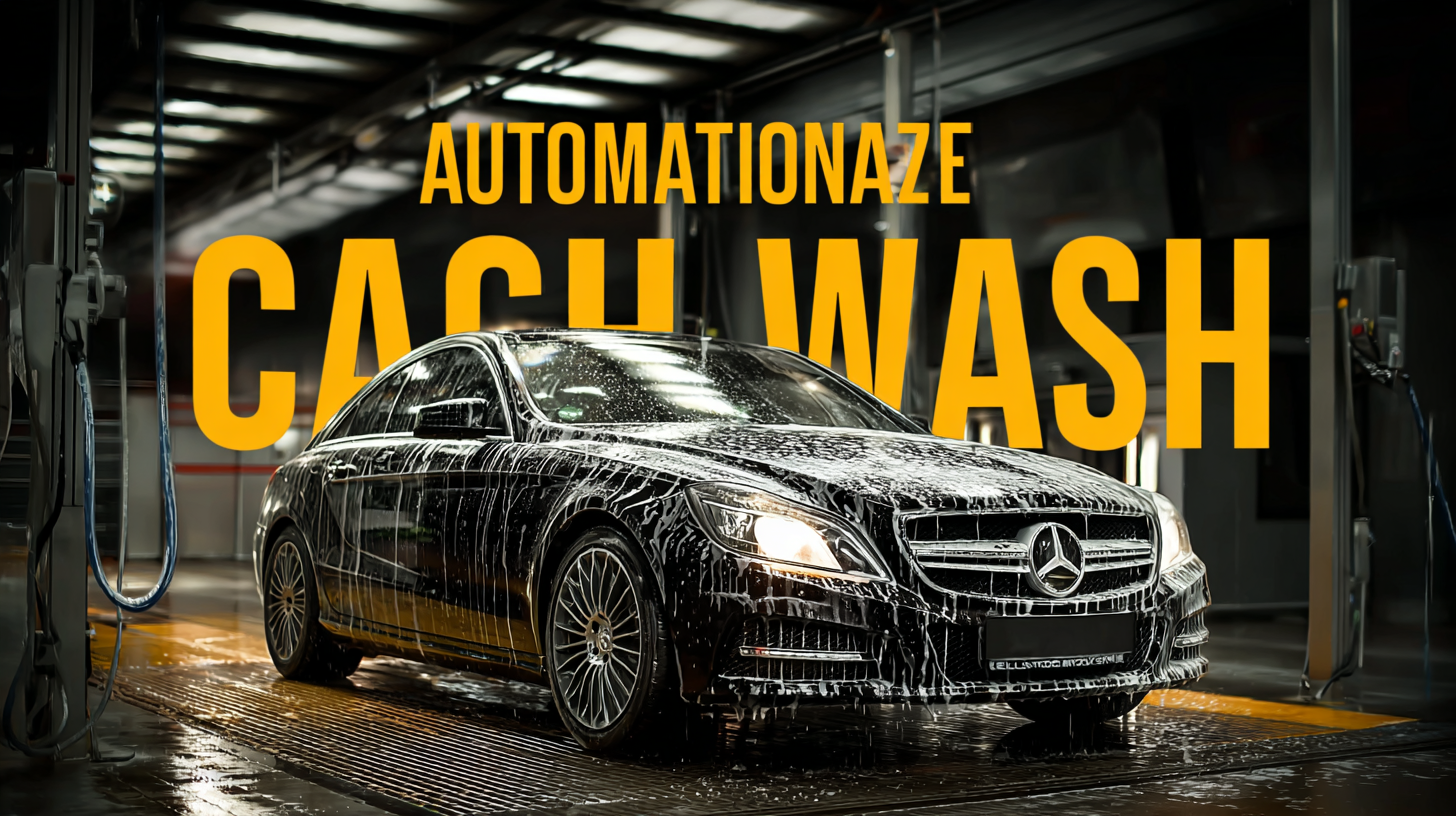Ultimate Guide to Choosing the Best Automated Car Wash Systems for Global Buyers
In recent years, the global automated car wash market has witnessed significant growth, projected to reach $33.8 billion by 2026, as reported by industry analysts. This surge can be attributed to the increasing consumer preference for convenience and efficiency in vehicle maintenance. With over 60% of car owners in the United States opting for automated car wash services, the demand for high-quality automated car wash systems has never been more pronounced.

As a result, potential buyers are faced with a plethora of options, ranging from touchless to soft-touch systems, each boasting unique benefits. Choosing the right automated car wash system not only enhances customer satisfaction but also contributes to sustainability by minimizing water usage and chemical runoff.
In this ultimate guide, we will explore critical factors to consider, offering insights and expert recommendations to ensure that global buyers make informed decisions in this evolving market.
Key Features to Look for in Automated Car Wash Systems
When selecting an automated car wash system, several key features stand out that can significantly enhance efficiency and customer satisfaction. According to a recent study by IBISWorld, the car wash industry has seen a growth of 3.5% annually, with automated systems playing a pivotal role in this trend. One essential feature to consider is the technology utilized in the washing process. Advanced systems incorporate touchless technology that minimizes the risk of scratches while maximizing dirt removal efficiency, catering to the growing consumer demand for safe and effective cleaning solutions.

Moreover, ease of maintenance and durability are crucial factors for global buyers. A report from Research and Markets indicates that the global demand for eco-friendly car wash solutions is on the rise, pushing manufacturers to design automated systems that use less water and biodegradable cleaning agents. Systems equipped with self-cleaning features and durable materials not only reduce downtime for maintenance but also promote environmental sustainability. Integrating these aspects can help businesses meet customer expectations and contribute to long-term operational success in a competitive market.
Emerging Technologies Shaping the Future of Car Wash Solutions
As automation continues to revolutionize various industries, car wash systems are no exception. Emerging technologies are reshaping the landscape of car wash solutions, making them more efficient and environmentally friendly. One significant innovation is the integration of artificial intelligence, which allows these systems to analyze the condition of a vehicle and customize the wash process accordingly. This not only enhances the cleaning quality but also minimizes water and detergent usage, making it a sustainable choice for eco-conscious consumers.
Another exciting development is the use of advanced robotics in automated car washes. These robotic systems can effectively navigate a vehicle through the washing process, ensuring that every inch is thoroughly cleaned without the risk of scratches or damage. Moreover, the implementation of smart payment solutions, including mobile apps and contactless payments, has streamlined the customer experience, allowing for a hassle-free transaction and reducing wait times.
As these technologies continue to evolve, global buyers can look forward to more innovative and efficient car wash systems that meet rising demands for convenience and sustainability.
Comparative Analysis of Global Automated Car Wash Models
When it comes to selecting the ideal automated car wash systems, understanding the diverse models available on a global scale is crucial. Different regions often have unique preferences and requirements, which influence the technology and design of car wash systems. For instance, European models tend to emphasize eco-friendliness and water conservation, often integrating advanced recycling systems. In contrast, North American designs might prioritize speed and efficiency, reflecting the fast-paced lifestyle of many users.

A comparative analysis reveals that while most automated car wash systems focus on delivering a thorough clean, variations in features such as drying mechanisms, cleaning agents, and user interfaces can significantly impact customer satisfaction. Asian models, for instance, may incorporate sophisticated robotic arms for enhanced precision, providing an edge in detailing. Furthermore, the experience of end-users, including the convenience of payment systems and the overall design interface, should not be overlooked in this comparison, as they play a vital role in attracting and retaining customers.
Cost-Benefit Considerations for Investing in Car Wash Technology
When considering the investment in automated car wash systems, evaluating the cost-benefit balance is crucial, especially in an era of rising operational costs. For instance, energy costs remain a significant concern for carwash owners, with utility expenses constantly impacting profitability. Adopting energy-efficient technologies, such as advanced dryers and low-water wash systems, can mitigate these costs. A recent analysis shows that energy-efficient dryers can reduce energy consumption by up to 30%, providing substantial savings over time.
**Tip:** Investing in equipment that has a proven track record of energy savings can significantly lower your overheads and enhance your bottom line.
Moreover, the shift towards subscription-based car wash services has altered industry dynamics, allowing customers to enjoy seamless experiences while ensuring steady revenue for operators. Embracing automation not only meets consumer demand for faster services but also addresses the ongoing labor cost challenge. Reports indicate that the carwash industry is rebounding post-recession, with growth projected to continue as operators innovate and streamline processes.
**Tip:** Analyze customer data to tailor services that cater to consumer preferences, ensuring that your automated systems align with market trends for maximum efficiency and profitability.
Cost-Benefit Analysis of Automated Car Wash Systems
This chart illustrates the cost-benefit analysis of automated car wash systems, comparing the initial investment, operating costs, maintenance costs, and revenue generated. This information is crucial for global buyers considering investing in car wash technology.
Sustainability Trends in the Automated Car Wash Industry
Sustainability has become a pivotal focus within the automated car wash industry as consumers increasingly demand environmentally friendly services. Modern automated car wash systems are now designed with advanced water recycling technologies and biodegradable cleaning agents, significantly minimizing resource consumption and pollution. These systems can save up to 90% of water compared to traditional washing methods, highlighting the industry's commitment to reducing its ecological footprint. By embracing sustainable practices, car wash operators can attract green-conscious customers while also benefiting from lower operational costs.
Moreover, the rise of electric and hybrid vehicles has pushed car wash companies to adapt their offerings. With these vehicles requiring unique care, many automated car wash systems are now equipped with specialized brushes and gentle cleaning solutions to ensure a safe wash experience. This adaptation reflects a broader trend towards sustainability that prioritizes not only the environmental impact but also the customer experience. As buyers around the globe consider their options, the emphasis on sustainable practices will undoubtedly influence their decisions, making it essential for businesses to stay ahead of these trends to remain competitive in a rapidly evolving market.